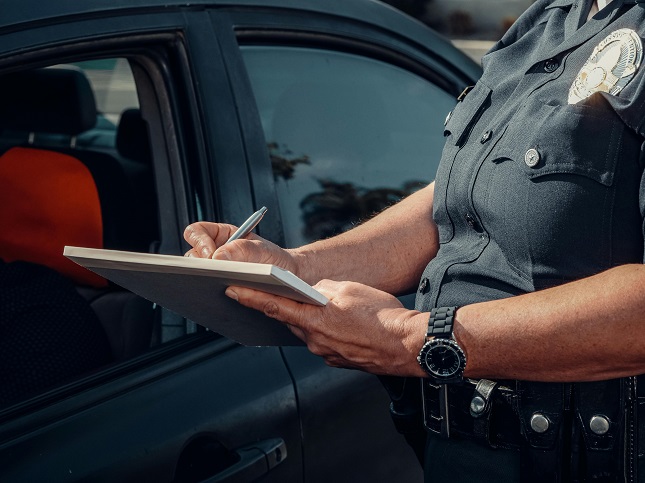A DUI or DWI charge lands like a thunderclap—suddenly everything changes: your freedom for the night, your driving privileges, insurance rates, and sometimes your job. It’s common to feel overwhelmed and convinced the outcome is already written. That’s not true. The law provides multiple paths to challenge or mitigate a DUI/DWI charge, and understanding those options early matters. This article walks through what the charges mean, the consequences you might face, the realistic defenses available, and practical steps to protect your rights.
What counts as a DUI/DWI?
States use different labels—DUI (Driving Under the Influence), DWI (Driving While Intoxicated or Impaired)—but they point to the same legal problem: operating a vehicle while impaired by alcohol or drugs. Most jurisdictions have a legal blood alcohol concentration (BAC) threshold—commonly .08% for adults—above which a driver is presumed impaired. But impairment can also be shown by poor driving, failed field sobriety tests, or presence of drugs (prescription or illegal) in your system.
Two important legal concepts to keep in mind: probable cause for the initial traffic stop and implied consent rules for chemical testing. Officers generally need reasonable suspicion to stop you and probable cause to arrest you. Many states require drivers to submit to breath, blood, or urine tests under implied consent laws, but how those tests are obtained and handled opens room for legal challenge.
Why the stakes are higher than a fine
The immediate penalties—fines, license suspension, possible jail time—are only the start. A DUI/DWI conviction can:
- Raise insurance premiums dramatically for years.
- Put professional licenses or employment at risk.
- Lead to mandatory alcohol education, ignition interlock devices, or community service.
- Stay on your criminal record, affecting housing and background checks.
Because consequences ripple outward, the best outcomes often involve minimizing both criminal and collateral damage.
Common defenses that actually work
It’s helpful to think of DUI/DWI defense as a toolbox. Not every tool applies in every case, but common and effective tools include:
- Challenging the traffic stop. If the officer lacked reasonable suspicion—if the stop was pretextual or based on a vague claim—any evidence gathered after the stop can sometimes be suppressed.
- Questioning probable cause for the arrest. Erratic driving or odor of alcohol may justify further investigation, but the reasons must be specific and timely. Courts scrutinize whether the officer’s observations truly amounted to probable cause.
- Field sobriety test (FST) problems. FSTs are subjective and affected by weather, footwear, injuries, fatigue, or medical conditions. Many standardized tests have strict administration protocols; deviation can undermine their reliability.
- Breathalyzer accuracy and maintenance. Breath machines require proper calibration, regular maintenance, and correct operator training. Gaps in records or improper procedures can cast doubt on readings.
- Blood test chain of custody and lab errors. Blood draws must be handled and stored carefully. Contamination, mislabeled samples, or delays in testing can provide grounds to challenge results.
- Medical or physiological conditions. Diabetes, GERD (acid reflux), or certain medications can produce readings or behaviors that mimic intoxication.
- Miranda and procedural violations. If investigators fail to respect constitutional protections during questioning or processing, statements or evidence might be excluded.
A careful defense doesn’t rely on a single strategy; it assesses the stop, testing, officer reports, body-cam footage (if available), and lab documentation to build the strongest mix of challenges.
The role of defense counsel—why timing matters
Early involvement by experienced counsel can be decisive. Defense attorneys immediately begin investigating: they request police reports, calibration logs, video footage, and lab records; identify potential witnesses; and safeguard procedural rights, such as DMV deadlines. Firms well-versed in criminal defense understand the rhythm of DUI cases—where evidence can weaken over time and where the prosecution’s case is strongest.
Highlighting representation early is not about promotion; knowledgeable legal teams, including The Defense Firm Criminal Law, often uncover technical flaws and procedural mistakes that the average person might overlook. These early actions can result in reduced charges, alternative resolutions, or even suppression of critical evidence.
Mistakes that make a hard situation worse
After an arrest, people commonly make avoidable errors:
- Talking freely to officers, jail staff, or other detainees about details of the incident.
- Posting about the arrest or sharing photos on social media.
- Signing waivers or written statements without legal counsel.
- Missing administrative deadlines (for example, to request a DMV hearing).
Silence and restraint are strategic. Speak only with your lawyer about case details.
Alternatives, mitigation, and what to expect in court
Not every DUI case goes to a jury. Depending on facts and jurisdiction, options can include:
- Pretrial diversion or first-offender programs that may lead to reduced or dismissed charges after compliance.
- Plea negotiations that exchange a DUI for a lesser offense—like reckless driving—with lighter penalties.
- Mitigation at sentencing based on employment, family responsibilities, or completion of treatment programs.
- Administrative hearings focused solely on driving privileges; outcomes there are independent from criminal court outcomes.
A sensible defense strategy weighs short-term benefits (like avoiding immediate jail or getting a lower charge) against long-term implications (criminal records, employment, and insurance).
Practical steps to take if you’re charged
If arrested, document everything as soon as you can: write down the time, location, weather, what you were wearing, any witnesses, and what the officer said. Preserve receipts or phone records that may explain your movements. Request copies of all reports and test results. Pay attention to administrative deadlines—failure to act promptly can forfeit important legal options.
Closing perspective
DUI/DWI cases are stressful and disorienting, but they are also defensible. Facts matter: the circumstances of the stop, the way tests were administered, and the completeness of the official records often decide outcomes. A thoughtful defense blends technical challenges with attention to long-term consequences. This overview is meant to orient—not replace—case-specific legal analysis. It’s important to approach these matters with clear information, a disciplined response, and an awareness of the many moving parts that shape the path forward.








































